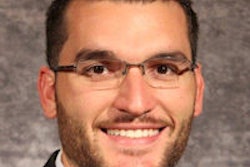
As our society has become increasingly litigious, professionals are becoming more aware of the need to protect their practice and the assets attached to their practice. A common form of protection is a restrictive covenant.
 Joseph D. Jordan, JD. Image courtesy of Jordan Law Group.
Joseph D. Jordan, JD. Image courtesy of Jordan Law Group.Simply put, a restrictive covenant is a contractual agreement that someone makes to restrict their practice in certain geographic locations for a certain amount of time. They can also be called noncompete agreements and often have a nonsolicitation agreement attached. These agreements vary widely in scope and time, but they can have a very real and lasting effect on the doctor signing them.
We will save the discussion of the nonsolicitation agreement for another time; this column will focus on noncompete agreements. The most common mistakes made when faced with a noncompete agreement are failing to negotiate the scope and time, assuming that it is nonnegotiable, and assuming that it is fair as presented. Covenants can range wildly and still be enforced. In one part of the U.S., a 25-mile covenant may be reasonable, while in another, a two-mile covenant may be unreasonable. Do not assume that a restrictive covenant is reasonable, and always ask legal counsel.
Case report
A few years ago, my firm was contacted by a young doctor who had entered into an associateship agreement directly out of school. Excited to land the job, and with a little pressure from the host doctor to sign, the young associate signed what was a vastly overbroad restrictive covenant in our opinion.
When the employment with the host doctor fell through, the associate was locked out of working in her hometown for two years after only working with her employer for three months. Sure, the courts may have some remedy, but the challenge process is long, and the courts are going to assume she went into the contract with "eyes wide open."
This young doctor also showed a common misconception about noncompete agreements -- that they are not enforceable. The vast majority of states enforce restrictive covenants regularly. The courts will look at them as being negotiated by the parties and as part of the employment process.
“Restrictive covenants should only be as broad as necessary to protect the host doctor -- and no broader.”
Doctors should never assume that any restrictive covenant is not enforceable and simply sign it anyway. If a restrictive covenant is not enforceable, then have it removed from the agreement before signing it. In discussions with the young associate, she revealed that she had heard from numerous colleagues that restrictive covenants were never enforced. Unfortunately, she found out that in her state, they are.
Now she is staring down the ramifications of a binding noncompete agreement, and they are heavy. The term is two years, and keep in mind the term does not start until employment is terminated. She is not able to work within 15 miles of her hometown, which is a densely populated area. She would also like to own a practice there; unfortunately, she will not be able to pursue any opportunities that come up in the area for two years. Her only options are to challenge in court, move out of the area, commute all the way out of the restricted territory for two years, or attempt to negotiate or buy her way out of the restrictive covenant. None of these are great options.
So how did the story end? The young associate challenged the reasonableness of the restrictive covenant in court. It took almost two years to finally reach a decision, which was that the restrictive covenant was enforceable. Additionally, the court delayed the running of the restrictive covenant's time until a decision was reached.
After two years in court with fees, the young associate is now under the additional two years of the restrictive covenant. The moral of this story is that any contract that limits you in any way should be reviewed on your behalf by a knowledgeable attorney. Restrictive covenants should only be as broad as necessary to protect the host doctor -- and no broader.
Joseph D. Jordan, JD, has been a dental exclusive attorney for more than a decade and is the owner and founder of Jordan Law Group. He offers services to the dental industry in the areas of dental practice acquisitions, associateship planning and placement, and lease review and negotiations.
Disclaimer: Nothing contained in this column is intended as legal advice. There are variations in laws among the states. This column scratches the surface on many legal issues that could call for a chapter unto themselves.
The comments and observations expressed herein do not necessarily reflect the opinions of DrBicuspid.com, nor should they be construed as an endorsement or admonishment of any particular idea, vendor, or organization.



















